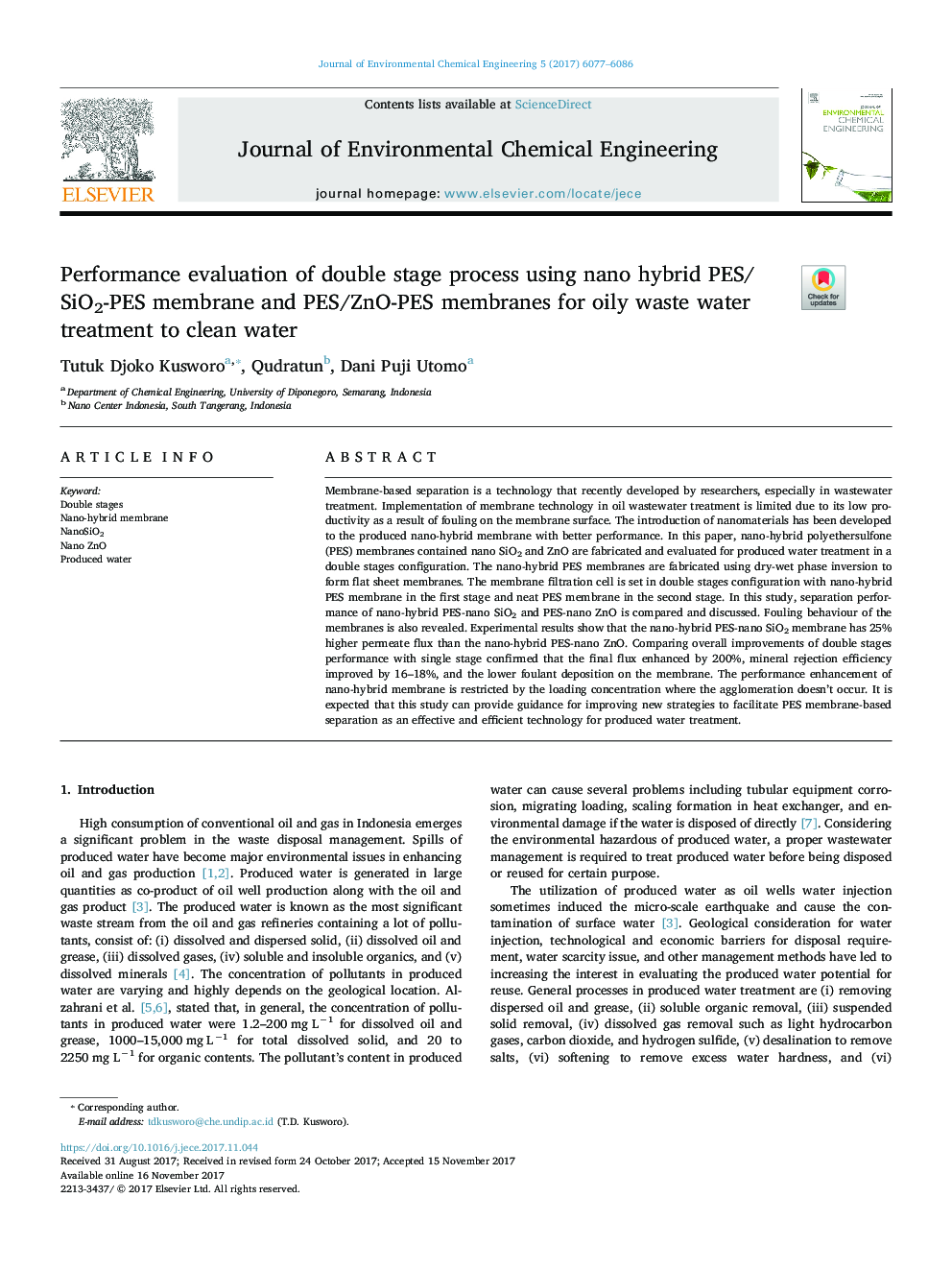| Article ID | Journal | Published Year | Pages | File Type |
|---|---|---|---|---|
| 6664234 | Journal of Environmental Chemical Engineering | 2017 | 10 Pages |
Abstract
Membrane-based separation is a technology that recently developed by researchers, especially in wastewater treatment. Implementation of membrane technology in oil wastewater treatment is limited due to its low productivity as a result of fouling on the membrane surface. The introduction of nanomaterials has been developed to the produced nano-hybrid membrane with better performance. In this paper, nano-hybrid polyethersulfone (PES) membranes contained nano SiO2 and ZnO are fabricated and evaluated for produced water treatment in a double stages configuration. The nano-hybrid PES membranes are fabricated using dry-wet phase inversion to form flat sheet membranes. The membrane filtration cell is set in double stages configuration with nano-hybrid PES membrane in the first stage and neat PES membrane in the second stage. In this study, separation performance of nano-hybrid PES-nano SiO2 and PES-nano ZnO is compared and discussed. Fouling behaviour of the membranes is also revealed. Experimental results show that the nano-hybrid PES-nano SiO2 membrane has 25% higher permeate flux than the nano-hybrid PES-nano ZnO. Comparing overall improvements of double stages performance with single stage confirmed that the final flux enhanced by 200%, mineral rejection efficiency improved by 16-18%, and the lower foulant deposition on the membrane. The performance enhancement of nano-hybrid membrane is restricted by the loading concentration where the agglomeration doesn't occur. It is expected that this study can provide guidance for improving new strategies to facilitate PES membrane-based separation as an effective and efficient technology for produced water treatment.
Keywords
Related Topics
Physical Sciences and Engineering
Chemical Engineering
Chemical Engineering (General)
Authors
Tutuk Djoko Kusworo, Qudratun Qudratun, Dani Puji Utomo,
